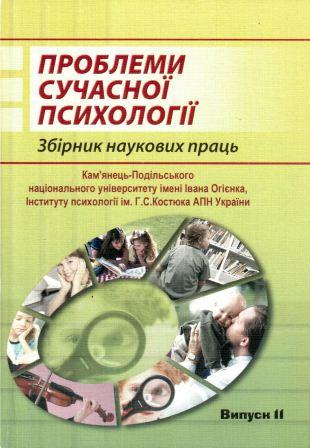Психологічні засоби продуктивного мислення
DOI:
https://doi.org/10.32626/2227-6246.2011-11.%25pKeywords:
творчість, продуктивне мислення, розумовий експеримент, комбінування, аналогія, моделювання, інтелектуальне бачення, інверсія.Abstract
На основі аналізу психологічних досліджень у статті розкрито
особливості психологічних засобів продуктивного мислення.
References
Адамар Ж. С. Исследование психологии процесса изобретения в
области математики / Ж.С.Адамар. – М.: Сов. радио, 1970. – 152 с.
Антонов А.В. Психология изобретательского творчества /
А.В.Антонов. – К.: Вища школа, 1978. – 176 с.
Загальна психологія: Підруч. для студентів ВНЗ / За загальною
редакцією акад. С.Д.Максименка – К.: Форум, 2000. – 543 с.
Эйнштейн А. Эволюция физики. Развитие идей от первоначаль!
ных понятий до теории относительности и квантов / А.Эйн!
штейн, Л.Инфельд . – М.: Молодая гвардия, 1966. – 262 с.
Эсаулов А.Ф. Активизация учебно!познавательной деятельности
студентов / А.Ф.Эсаулов. – М.: Высшая школа, 1982. – 224 с.
Кучинский Г.М. Диалог и мышление. Психология внутреннего ди!
алога / Г.М.Кучинский. – Минск: Университетское, 1985. – 304 с.
Моляко В.А. Психология решения школьниками творческих
задач. – К.: Рад. школа, 1983. – 94 с.
Психология творчества: общая, дифференциальная, при!
кладная / Отв. ред. Я.А.Пономарев. – М.: Наука, 1990. – 222 с.
Чепелєва Н.В. Діалог як механізм творчої діяльності // Пси!
хологія: Зб. наук. праць. – К.: НПУ, 1998.– С. 3!11. – Вип. 2.
Downloads
How to Cite
Issue
Section
License
Copyright
The Editorial Board has the full right to publish original scientific papers containing results of theoretical and experimental research works which are not currently subject to review for publication in other scientific editions. The Author shall transfer to the editorial board of the Collection the right to spread the electronic version of the paper, as well as the electronic version of the paper translated into English (for papers originally submitted in Ukrainian and Russian) by all kinds of electronic means (placement at the official website of the Collection, electronic databases, repositories etc).
The Author of an article reserves the right to use materials of the paper, without approval with the editorial board and the founders of this Collection: a) partially or fully, for educational purposes; b) for writing own dissertation papers; c) for preparation of abstracts, conference reports and presentations.
The Author of an article can place electronic copies of the paper (including the final electronic version downloaded from the official website of the Collection) at:
- personal web resources of all Authors (websites, webpages, blogs etc.);
- web resources of the institutions where the Authors are employed (including electronic institutional repositories);
- non-profit public access web resources (for example, arXiv.org).
But in all cases, it is obligatory to have a bibliographic reference to the paper, or a hyperlink to its electronic copy placed at the official website of this Collection.






